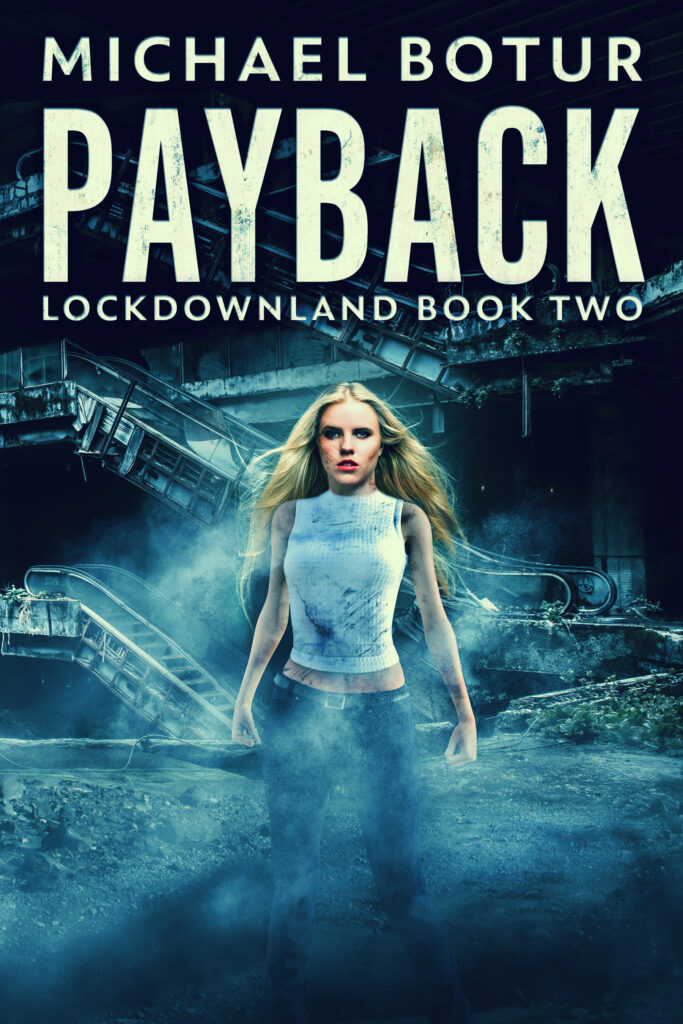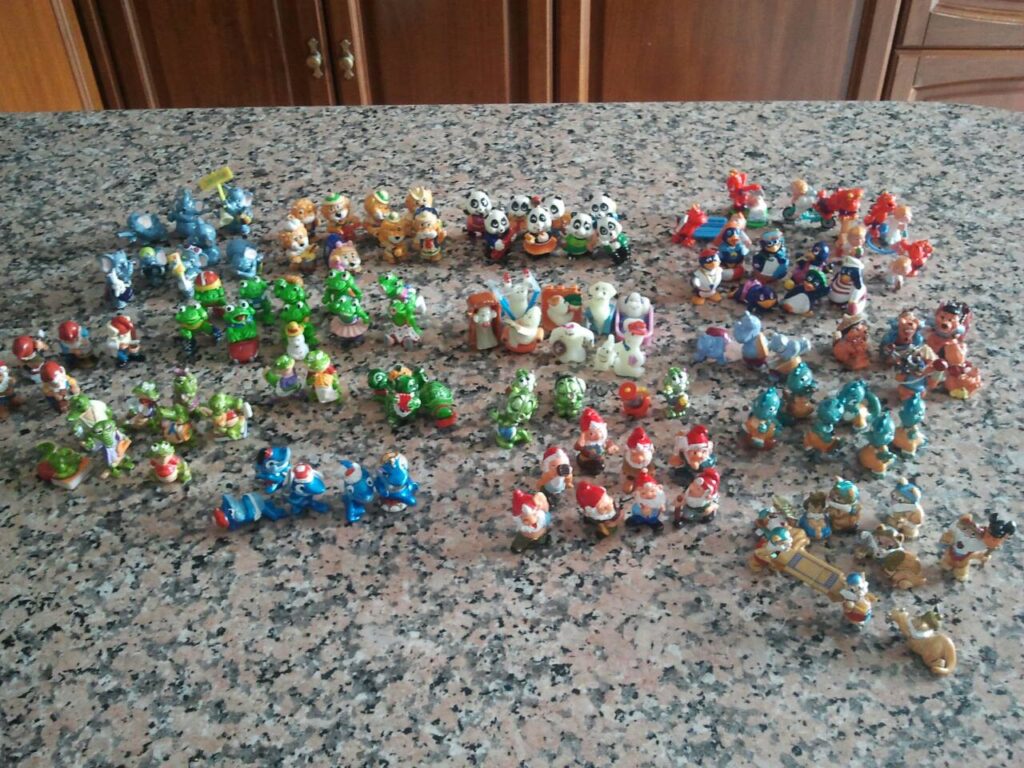My honest and ramble-y review of Michael Botur’s Payback

Last Summer I reviewed Moneyland by Michael Botur. It was an interesting read for sure, and I was astonished by how intriguing the story was despite the fact that the protagonists were unredeemable assholes. And that they didn’t even seem to get better over the course of the book.
As you can imagine, when I found out there was a second book in the series, I knew that I had to read it. Not only because I was fascinated by the author’s style in voicing the characters, but also because I felt there was a big chunk of the story context that hadn’t been expanded in Moneyland. You could see it was there, looming over the dome and the entire world outside, even though you couldn’t really get a grasp on it.
I hoped Payback, the second book in the series, was going to give some insight about the human-mechs interaction, and it didn’t let me down. On the opposite, it was a much better read than Moneyland, and not because Moneyland was bad. But Payback really cranked the crazy up to 1000 and it was like a ride on a rollercoaster. Seriously, I don’t know how long it’s gonna take to process that ending, and the worst part is that I can’t talk about it here or I’ll spoil it.
A bit about the story
Payback is set a few years after the end of Moneyland. Eden wasn’t the only survivor from the dome, but she was the one who had the rockiest aftermath. Not only she had to give birth while still in lockdown, but she was also betrayed by her friends and had to spend three years in jail. When she gets out, the world is completely changed.
Machines and artificial intelligence have taken full control over the world, and humans seem to have given up. Many of them chose to be uploaded to wander forever in the cloud rather than facing real life, and also Eden’s father is among the ones who left. All the action is set in motion by Eden and her mother trying to get him back: while they’re on a mission to unplug him, they stumble onto two rival factions and another dome descending on Earth to imprison the few people still alive.
Eden actually seems more mature and more adapted to fight for her survival, also because now she’s got a daughter of her own to take care of. The best part, in my opinion, is that on somethings she’s the same spoiled self-assured child she was before the dome, and this marks a stark contrast with how protective she is when it comes to her family.
Even if we don’t see it “happening”, we see a different Eden at least when it comes to her daughter. It’s heartbreaking at times to look at how Eden tries to make it easier for Hope and to be a good example for her, while at the same time she tries to survive in a hostile environment. Thinking about the word mamastrong still gives me all kinds of feeling, and I wonder when it’ll go away.
There is room for action (a lot more of action), betrayal, despair and hope, all in the span of a single book. And there is an explanation about how Eden, her family and the families of her friends tie to what happened to the world.
A wave of feelings so hard to make sense of…
I really liked how, in the beginning of the book, the kids-parents relationship is explored. They really hate each other’s guts, and I can’t help but think how fitting it is as a metaphor for the world we’re living in. There is a conflict between generations in play right now, even if not as harsh as the one depicted in Payback. And it’s mainly focused on the current state of the planet and how it’s going to get worse, and two generations accusing each other of being lazy and careless. To be the cause of the disaster.
There is the frail and complicated relationship between man and machine, and a lot of concern about what mankind could have done to prevent the machine from taking over. All the efforts in limiting it, all the rules and the backdoors backfired and caused the singularity to come even quicker. And, opposed to a powerful and almighty force, mankind wasn’t able to set aside grudges and ambitions and fight back. Some took it against their fellow humans. Some other just gave up and left for good.
This couple of metaphors is what, in my opinion, contributed to make this story so compelling and unique. especially because it was mixed with memorable characters and the difficult choices they have to make. With the sense of despair, loneliness and anger that only being born in an already doomed world can give you.
It’s really hard to review Payback without mentioning all the questions it stirred in me, to justify all the feelings without giving away how it ends. But if you just read one book about a close dystopian future this year, please let it be this one. You won’t regret it.
Yeah, but what was that thing about chocolate?
I’ll leave it here because I want to end this review on a higher note. One thing that has always amused me is the fact that American kids from my generation could never enjoy a Kinder Surprise. You know, those little egg-shaped shells of white and milk chocolate with a small gadget inside, enclosed into a yellowish plastic egg. I had so many of them as a kid, and somewhere at my mother’s house I still have all the surprises in their own box.

It was quite a shock to know that they are deemed dangerous overseas, especially when compared to many other dangerous things that are freely sold over there (both food-related and not). And so you can imagine how seeing them mentioned in Payback (which I assumed was set in the United States) kickstarted my fantasy and my innate ability to digress.
When did the ban on them stop in America? Does it have anything to do with the singularity? What if their introduction in a new market indirectly sparked the apocalypse? And what if, instead they could have prevented it? As if this book gave me nothing else to mull about, I think from now on I’ll torment myself on this, too.
Be First to Comment